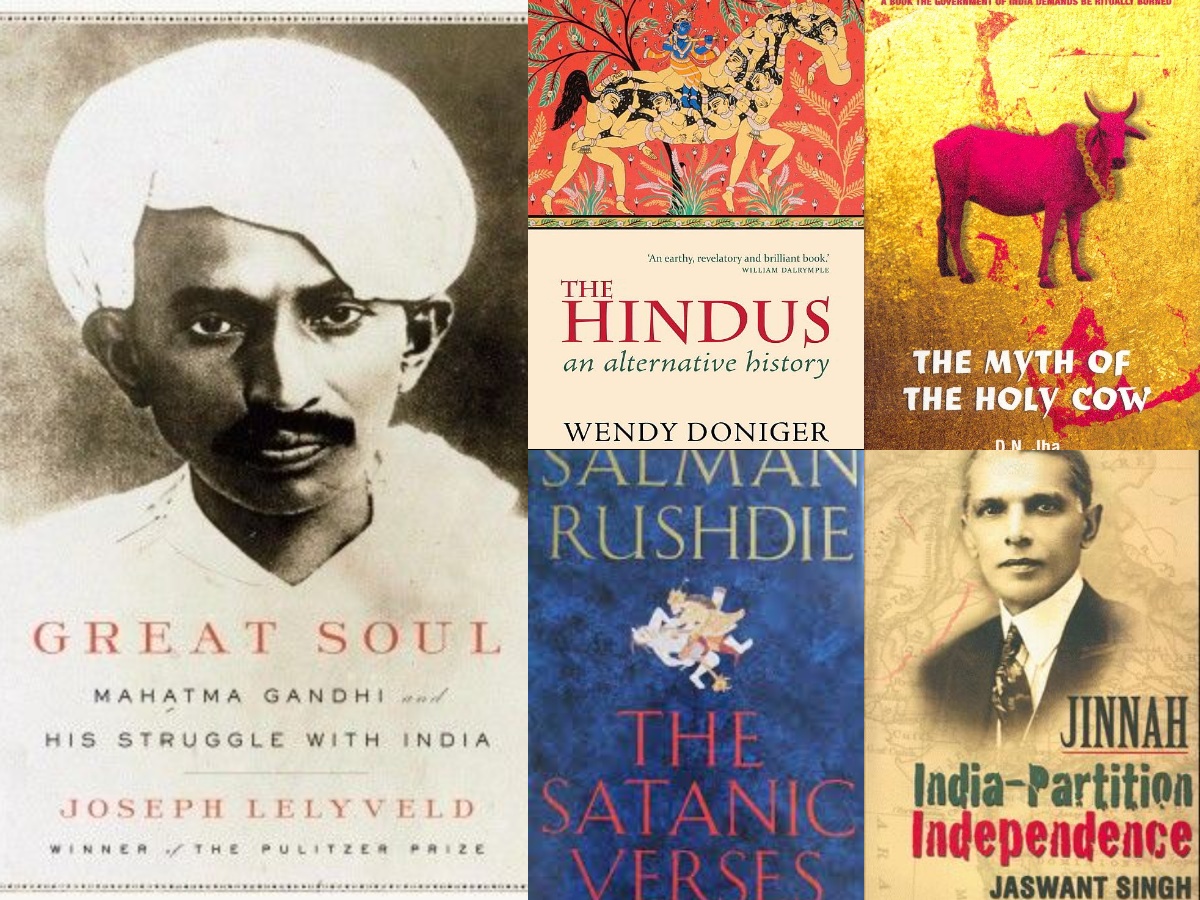“Censorship is a dead end. Find your freedom to read!”
This above line is the theme for Banned Books Week 2020. Banned Books Week is an annual event celebrating the freedom to read. It was launched in 1982 in response to a sudden surge in the number of challenges to books in schools, bookstores, and libraries. Banned Books Week is being celebrated from September 27 to October 3 this year.
Banned Books Week is recognised every year to highlight the value of free and open access to information. This is celebrated to bring together the entire book community — librarians, booksellers, publishers, journalists, teachers, and readers of all types. This is done in order to support the freedom to seek and to express ideas, even those some consider unorthodox or unpopular.
Here are five books that are banned and challenged in our country. Let’s celebrate the Banned Books Week by recognising the books that were banned:
1. The Satanic Verses (By: Salman Rushdie)
Salman Rushdie’s 1988 novel, based on the life of the Prophet Muhammad attracted worldwide controversy. The book was banned as a large chunk of the Muslim community felt that it contains insults to the legend of Prophet Muhammad.
Islam believes there is only one God, but Rushdie’s novel is a fictional retelling of several verses that initially appeared in the Quraan (before being removed), in which the Prophet Muhammad mentions three pagan Goddesses, whom he describes as God’s intermediaries. Rushdie’s novel goes on to describe Islam as a religion with too many rules and paints unflattering portraits of important figures in the Quran.
The book that made the word ‘fatwa’ popular in the literary community. In 1989, Iran’s religious leader, Ayatollah Khomeini even pronounced a death sentence on Salman Rushdie for ‘insulting’ Islam with his novel “The Satanic Verses”.
2. Great Soul: Mahatma Gandhi and His Struggle with India (By: Joseph Lelyveld)
In 2011, Pulitzer Prize-winning journalist Joseph Lelyveld published a biography of Gandhi. In the book, he suggests that Gandhi had an intimate relationship with a German-Jewish architect, Hermann Kallenbach, whom he lived with in Johannesburg for two years. Many believe Lelyveld was hinting that this was a homosexual relationship and the book was promptly banned by the government in Gujarat.
Prime Minister Narendra Modi said the writing was ‘perverse in nature and hurt the sentiments of those with capacity for sane and logical thinking’ and demanded a public apology from the author.
3. The Hindus: An Alternative History (By: Wendy Doniger)
In 2009, Sanskrit scholar Wendy Doniger published an alternative history of Hinduism, drawing upon perspectives of women, animals, outcasts, and Dalits to contradict the sanitised, patriarchal views of Hinduism. This book saw a major backlash in India, facing flak from Shiksha Bachao Aandolan Samiti.
4. Jinnah: India-Partition-Independence (By: Jaswant Singh)
This book was banned for being sympathetic towards Jinnah. The book portrayed Jinnah in an objective manner rather than as a demonised nation breaker. The book analysed Jinnah’s public life and his political journey from being the ‘ambassador of Hindu-Muslim unity’ to the leader of the All India Muslim League, the Governor-General of Pakistan later elevated to the Quaid-e-Azam of Pakistan.
Jaswant Singh, the leader of opposition in 2004, was expelled from the BJP, although he re-joined on the 24th of June 2010 after the senior BJP leader L. K. Advani took the initiative to bring him back.
5. The Myth of the Holy Cow (By: Dwijendra Narayan Jha)
Cultural historian Dwijendra Narayan Jha quite literally took the bull by the horns when he published The Myth of the Holy Cow in 2001. India’s Hindu majority believes the cow to be sacred and abstains from eating beef.
Jha in this book argues that the ‘holiness’ of the cow is a myth and its flesh played an important part in the cuisine of ancient India. Citing Hindu, Buddhist, and Jain religious scriptures, he underlines the fact that beef-eating was not Islam’s ‘baneful bequeathal’ to India. Nor can abstention from it be a mark of ‘Hindu’ identity, notwithstanding the averments of Hindutva forces who have tried to foster the false consciousness of the ‘otherness’ on the followers of Islam.

